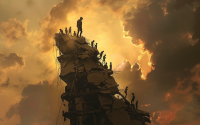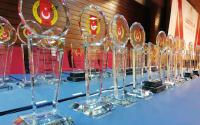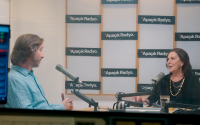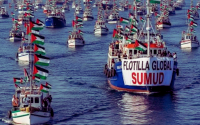By David Usborne in New York
01 August 2007
After many months of frustration and delay, the UN last night authorised the deployment of an intervention force of up to 26,000 UN and African peacekeepers in Darfur in a fresh attempt to halt the conflict and suffering in the impoverished region.
The UN Security Council unanimously passed a resolution sponsored jointly by Britain and France and submitted late on Monday, giving a green light to the force, just hours after Gordon Brown delivered an impassioned speech at UN headquarters in which he hailed the move.
"Today is an important decision day for Darfur, and for change," Mr Brown told the audience following a meeting with Ban Ki-moon, the UN secretary general. During talks with President George Bush on Monday, he also stressed the need to end the Darfur crisis. He used the occasion to issue a blunt warning to the Sudanese government, which has repeatedly stonewalled on sending sufficient troops to quell rebel activity in the region, not to stand in the way of the force.
"We must be clear: if any party blocks progress and the killings continue, I and others will redouble our efforts to impose further sanctions, " he said. "I am not prepared to let this tragedy continue without action."
The use of African Union (AU) soldiers in the operation was one of the conditions sought by the government in Khartoum, which has received much of the blame for the conflict that has claimed more than 200,000 lives and displaced as many as 2.1 million.
Diplomats expect the mission to cost as much as $2bn (£1bn). China was concerned about the resolution because it includes provisions under Chapter 7 of the UN charter for the troops to use force to defend UN and humanitarian workers to ensure the freedom of movement of personnel trying to ease the population's suffering. Mr Ban called the force's task a " historic and unprecedented operation" that will send "a clear and powerful signal" of help to the people of Darfur.
And in a statement issued shortly after the Security Council approved the force, Bernard Kouchner, the French Foreign Minister, pressed for the rapid deployment of the force and full co-operation from all sides, particularly the Sudanese government.
He said: "This is a heavy and difficult task that demands the full mobilisation of the international community" supporting the UN and AU, Kouchner said.
"This will also demand unreserved co-operation of all parties to the crisis, in particular the government of Sudan," the statement said. The "hybrid" force is to replace a 7,000-strong AU force no later than 31 December. The new force, hailed by as the world's biggest peacekeeping operation, would involve 19,555 troops and about 6,000 police units.
Millions of refugees have been forced into eastern Chad and elsewhere, and M. Kouchner urged action to resolve the consequences of the Darfur crisis, suggesting that eastern Chad and north-east Central African Republic be likewise secured.
Emyr Jones Parry, the UK's ambassador to the UN, called it "an unprecedented undertaking in scale, complexity and importance".
The conflict began in February 2003 when ethnic African tribes rebelled against what they consider decades of neglect and discrimination by the Arab-dominated government. Sudan's government is accused of retaliating by unleashing a militia of Arab nomads known as the janjaweed a charge it denies.
The poorly equipped and under-funded AU force has been unable to stop the fighting, and neither has the Darfur Peace Agreement, signed a year ago by the government and one rebel group. Other rebel factions called the deal insufficient and fighting has continued.
NGOs including Oxfam and Christian Aid cautiously welcomed the move. but warned about delays to deployment.






